EU migrants: Public services 'must prepare'
- Published
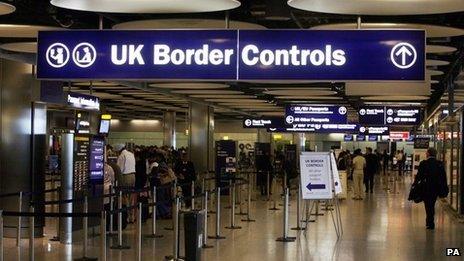
Restrictions on Bulgarians and Romanians in the EU will be lifted from January
Ministers should take practical steps to help public services cope with the arrival of Bulgarian and Romanian migrants, a think tank has urged.
There should be more funds for housing, schools and policing, the Institute for Public Policy Research (IPPR) said.
Bulgarians and Romanians have been able to work in the UK only in certain circumstances, but EU restrictions on movement will be lifted on 1 January.
The Home Office said its focus was on ending abuse of movement within the EU.
Measures are already planned to restrict migrants' right to benefits.
'Atmosphere of panic'
Since Bulgaria and Romania joined the EU six years ago, their citizens have been able to work in the UK only if they are self-employed, have a job offer, or are filling specialist posts for which no British worker can be found.
Over the past month, the government has tightened the rules on benefit claims by EU citizens who come to the UK, amid growing concerns about a possible influx of Romanians and Bulgarians.
But the IPPR said the plans had been devised in an "atmosphere of panic and fear-mongering" and were largely "symbolic".
Instead, the institute said practical help was needed to deal with increased demands on the privately-rented housing sector and on police who may have to deal with more incidents of anti-social behaviour by people unaware of UK laws and customs.
It also called for extra translators in schools and health centres.
It said there should be a "dedicated" pot of money to pay for the measures, from visa fees and the European Social Fund.
The IPPR's Tim Finch says that the government's plans to restrict benefits for migrants "smacks of panic"
The IPPR's report criticised the abolition in 2010 of the Migration Impacts Fund which helped local authorities deal with unexpected pressure on public services.
The institute recommended that a new fund should be set up and cabinet sub-committee assigned to support councils.
IPPR senior research fellow Alex Glennie said: "It is entirely legitimate for politicians to be concerned about the pace and scale of European migration flows, not least because this is an issue about which there is so much public anxiety. But the political response has been more symbolic than substantive.
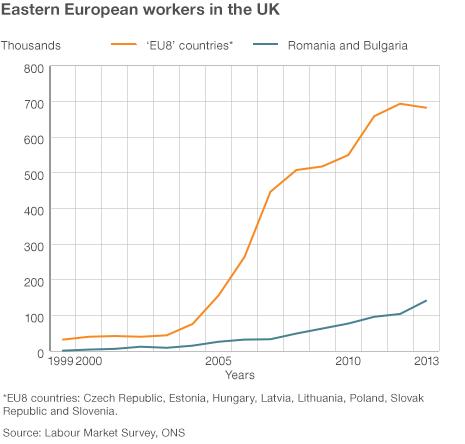
"Failure to properly prepare for the rapid inflow of citizens from the previous group of eight states in 2004 and the effects that this had on communities was short-sighted, and led to a number of avoidable problems. It also polarised the broader migration debate in the UK.
She added: "Since then, the UK has had 10 years of experience managing the impact of migration from these countries.
"The past decade has shown that the UK's economy and society are flexible enough to adapt to and benefit from European migration flows, as long as the pressure points they create are quickly identified and addressed.
"There is little to suggest that these lessons have been learned and applied in the run up to January 1st, but even now it is not too late to take some practical steps to alleviate any issues that might arise."
The Home Office said its focus was on cutting out the abuse of free movement between EU member states and addressing factors that drive European immigration to Britain.
Coalition tension
The report comes after Business Secretary Vince Cable told the BBC that a 75,000-a-year cap on the number of EU migrants to the UK would not happen.
The Liberal Democrat minister accused the Conservatives of being "in a bit of a panic because of UKIP", as he responded to Home Office proposals leaked last week.
Home Secretary Theresa May has not ruled out a possible future cap, saying there is an issue over "free movement".
When asked if there was a crisis in the coalition over the issue, Mr Cable said there was "quite a lot of tension".
He echoed earlier comments by his party leader Nick Clegg, arguing that there should not be further restrictions on freedom of movement within the EU.
Earlier, Bulgarian President Rosen Plevneliev warned that David Cameron's plans to toughen rules on immigration could harm the UK's image as a "great global power that pioneered integration".
Downing Street said that while free movement was a principle of the EU it could not be a completely unqualified one.
UKIP, which has called for withdrawal from the European Union and greater restrictions on immigration, has seen improved poll ratings this year.
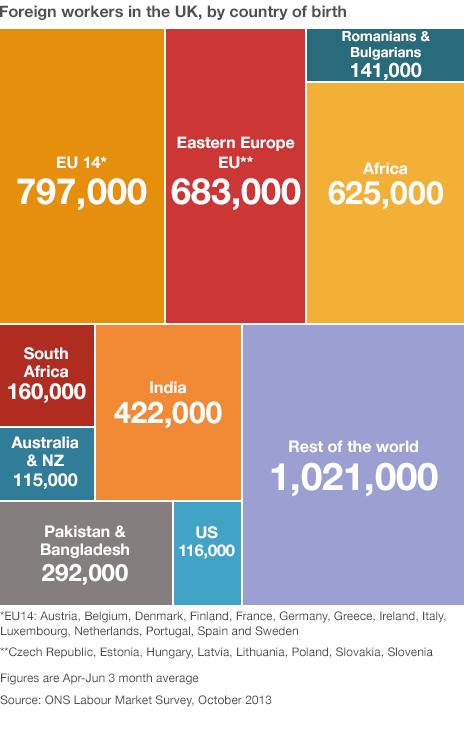
- Published22 December 2013
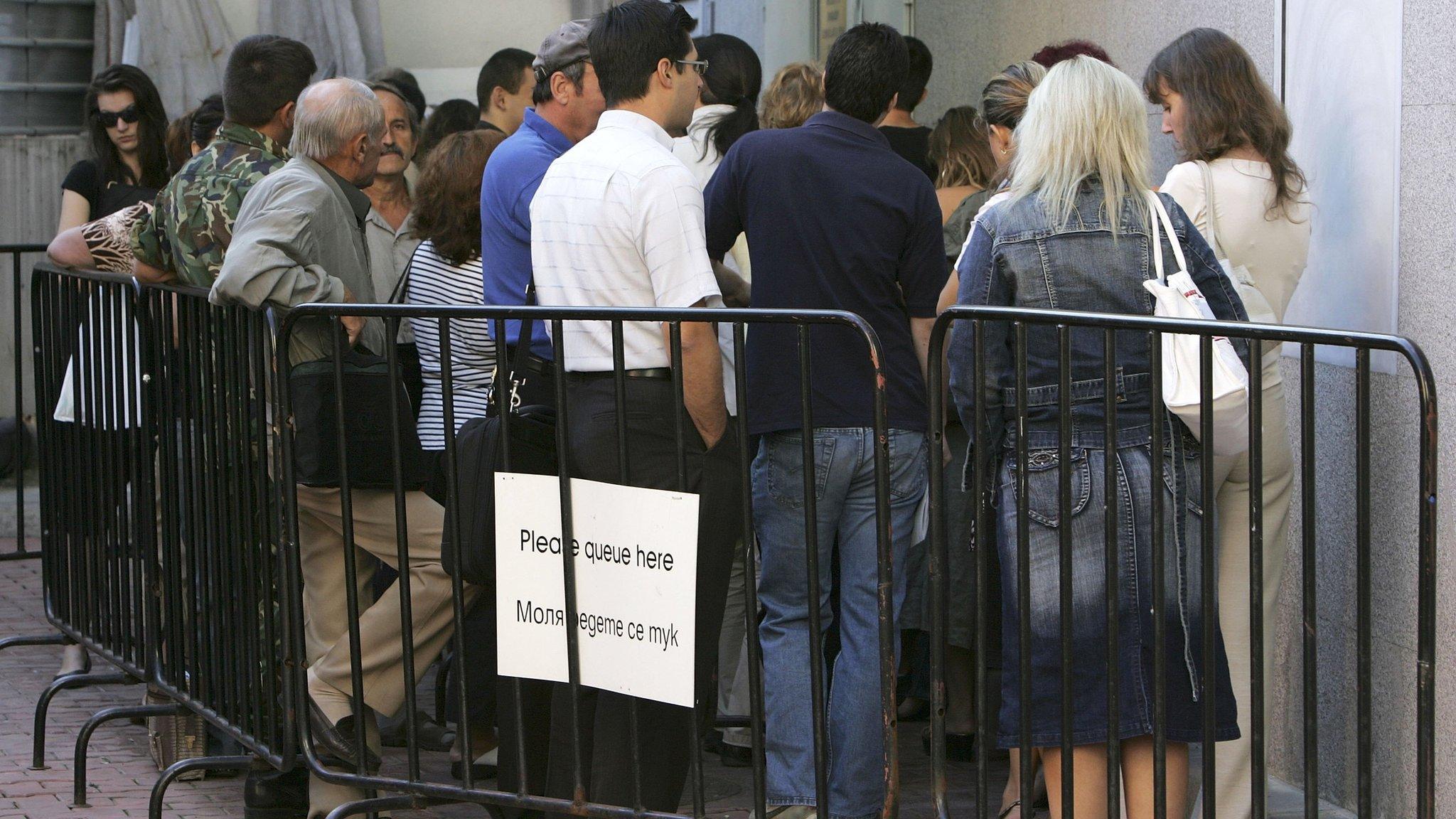
- Published22 December 2013
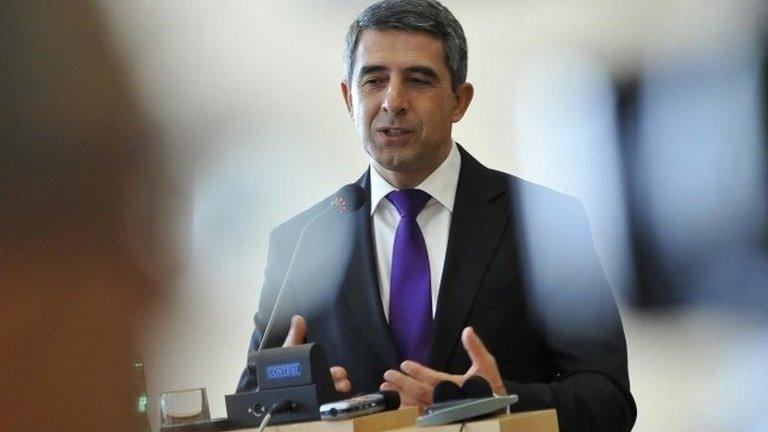
- Published25 November 2013
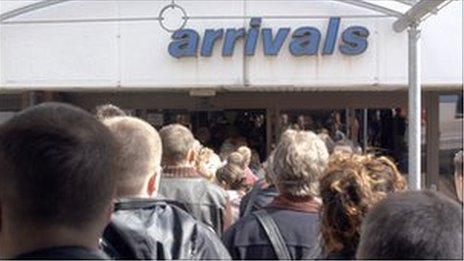
- Published14 May 2014
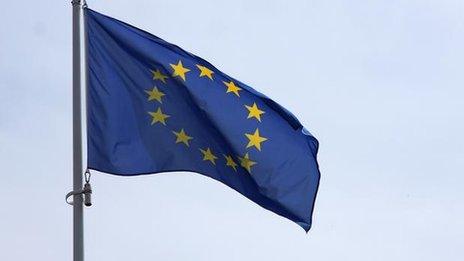
- Published16 August 2013
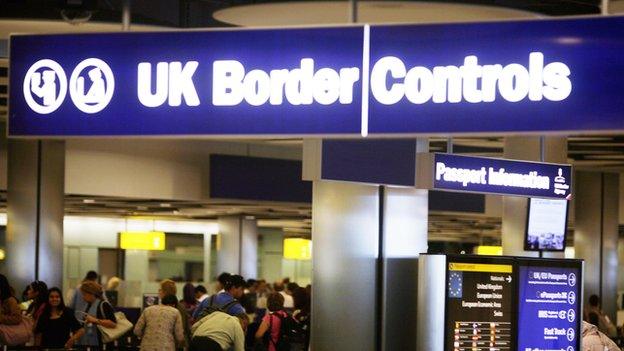
- Published18 December 2013
